China residents share memories of winters past
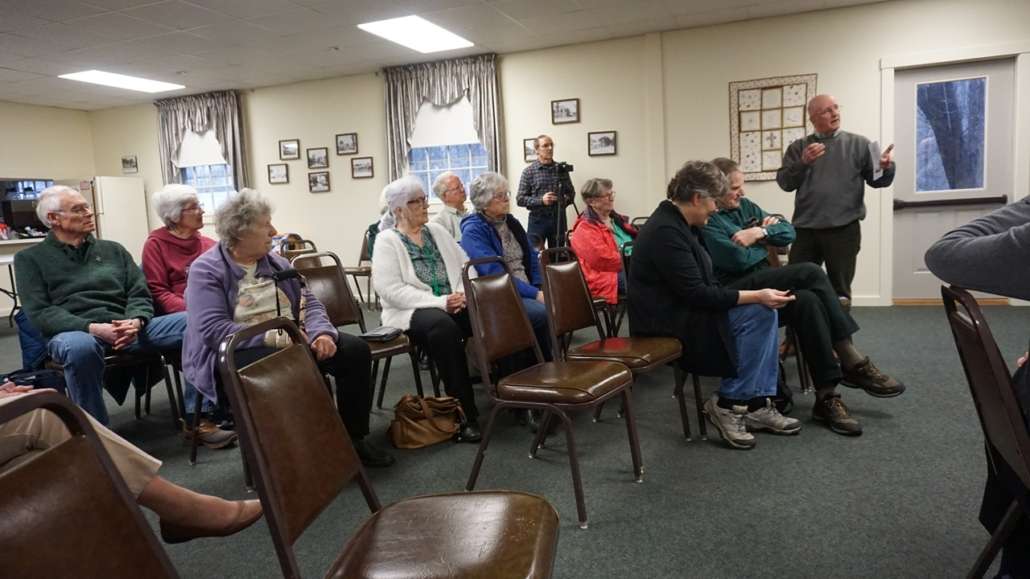
Part of the crowd at the winters of the past memory-session sponsored by the China Historical Society. (photo by Eric W. Austin)
by Eric W. Austin
On the afternoon of Sunday, March 17, I parked in a puddle across from the China Baptist Church on Causeway Road. The day was cold and gray, but notably, China Lake was almost entirely free of ice, marking an unusually warm and (mostly) snow-sparse midwinter in Maine.
I was attending a memory-session at the Baptist church, organized by the China Historical Society, dedicated to reminiscing about winters past. Inside, several tables were set up with historic items brought by attendees or provided by the historical society, alongside a collection of photos. My attention was captured by a photo of an old-fashioned rail engine buried in the snow, with several men shoveling it out.
Bob Bennett, a member of the society, explained that the photo depicted one of the engines from the narrow-gauge railway that once connected China, Albion, and Branch Mills. In the late 1800s and early 1900s, this railway was a bustling conduit for passengers and goods (mostly milk and potatoes). (Incidentally, Bob Bennett has plans for a tour of the narrow-gauge railway this summer, and interested individuals are encouraged to contact him or the society to reserve a spot.)
The session began with an old film recently digitized by the historical society, showing ice harvesting on China Lake. The film was grainy and silent, which left me wishing for a lively piano soundtrack to accompany the visuals.
Ron Morrell, who moderated the discussion along with Scott McCormac, then invited the audience, comprising about two dozen residents, to share their memories. The conversation turned to the scale of ice harvesting on China Lake and the Kennebec River, where over 40 operations would take place each winter. The ice was cut with large saws and stored in sawdust-packed houses near the water.
A few attendees shared fond childhood memories of playing in the sawdust. One story, told by Harold Charles, involved two sisters who got back at their bothersome older brother by burying him up to his neck in sawdust at a local ice house.
Questions about the longevity of the stored ice led to discussions about the sawdust from local sawmills in Vassalboro, which was essential for preserving the ice all year. The conversation also touched on Maine’s ice being exported as far as Africa and the cobblestones used as ballast for the returning ships, which contributed to many of New England’s cobblestone roads and walkways.
The China Historical Society’s call for more winter photos from residents was highlighted, with a promise to digitize and return any photos shared.
Following this, Harold Charles read from a diary entry or letter from the 1940s or ’50s, which included amusing advice on predicting the severity of the coming winter based on observations of corn husks, onion skins, and the behavior of squirrels.
The discussion also covered memorable difficult winters, with Neil Farrington recalling skating through fields after an ice storm, and another resident reminiscing about the town’s post-New Year’s Christmas tree bonfires.
A brief slideshow showcased images from China, South China, and Branch Mills, with one resident explaining the purpose of wooden planks laid along the sidewalks to avoid the mud, due to the unpaved roads of the time.
The session wrapped up with anecdotes about E.B. White, known for Charlotte’s Web, who once spent a night in China, and reminiscences about the challenges of keeping warm in older times.
The event was documented by Tom Parent, with photos and audio recordings soon to be available from the China Historical Society. To join the society, a nominal membership fee of $10 (for individuals) is required.
Responsible journalism is hard work!
It is also expensive!
If you enjoy reading The Town Line and the good news we bring you each week, would you consider a donation to help us continue the work we’re doing?
The Town Line is a 501(c)(3) nonprofit private foundation, and all donations are tax deductible under the Internal Revenue Service code.
To help, please visit our online donation page or mail a check payable to The Town Line, PO Box 89, South China, ME 04358. Your contribution is appreciated!


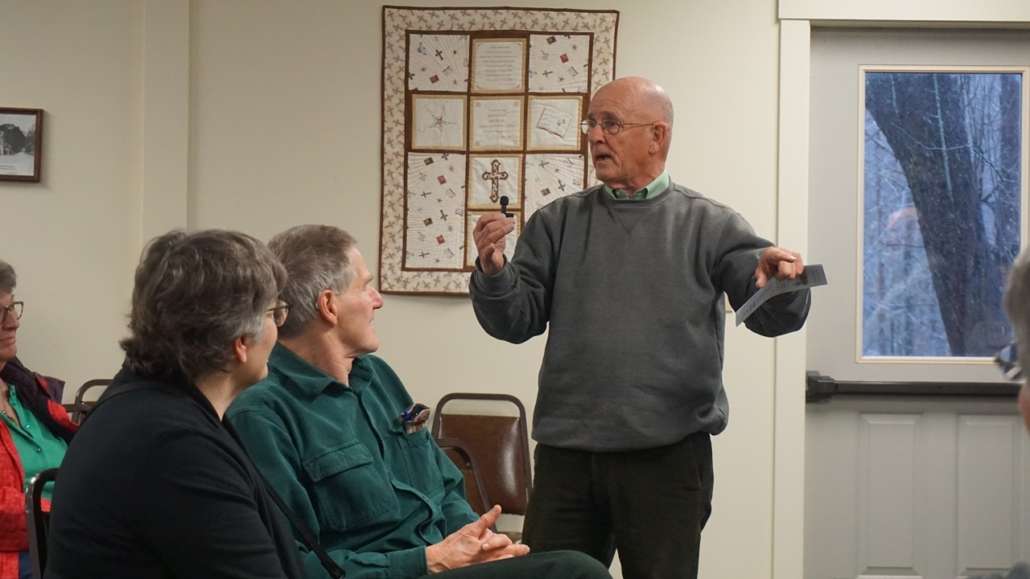
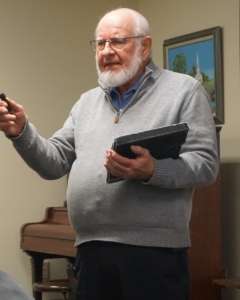
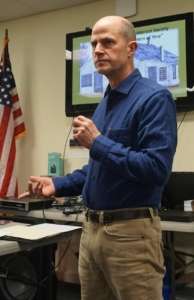
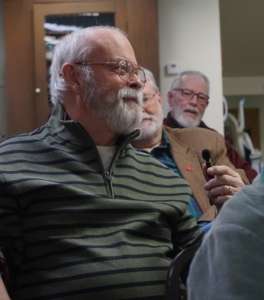
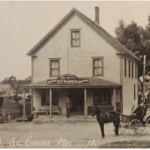


Leave a Reply
Want to join the discussion?Feel free to contribute!